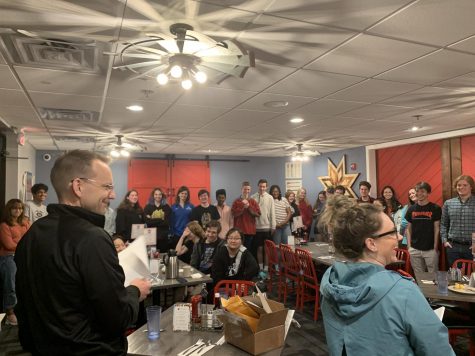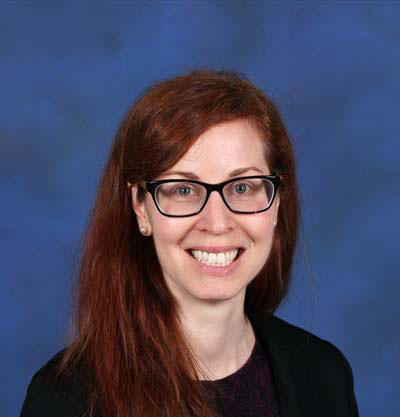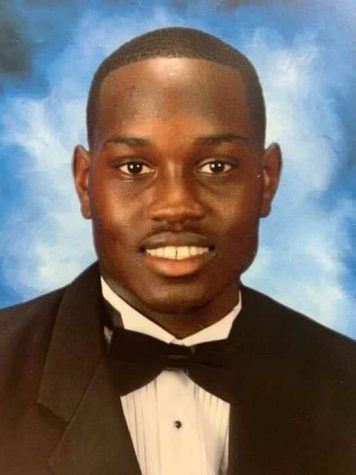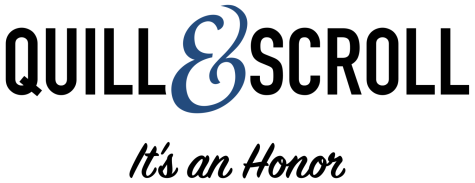THE WEEKLY SCROLL
May 8, 2020
News, tips and advice from Quill and Scroll
The Lede
By Nichole Shaw, Q&S Communications Director
Pulitzer Prizes awarded
And a friend of Quill and Scroll is among the distinguished winners
Columbia University in New York announced the 2020 Pulitzer Prize winners on Monday afternoon. They was announced in atypical fashion, considering the circumstances, live-streamed from Pulitzer administrator Dana Canedy’s living room, but nevertheless recognized exemplary work in journalism, book, drama and music.
One of the winners was someone I had the chance to interview about a year and a half ago for Quill and Scroll’s Magazine, Volume 93, Issue 1: Nikole Hannah-Jones. Something she said to me back in the fall of 2018 still sticks with me to this day.
“The only thing that I owe is to be fair and accurate,” Hannah-Jones said.
She wasn’t wrong, and that loyalty to fairness and accuracy led her to earning the most prestigious award in journalism commentary category for her deeply reported personal essay, “America Wasn’t a Democracy, Until Black Americans Made It One.” The essay was published for the 1619 Project, which Hannah-Jones brought to fruition, as the project came as a result of an idea she had. The project seeks to place the enslavement of Africans at the center of America’s story, prompting public conversation about the nation’s founding and evolution.
Her essay in the project made me cry as a person of color who was given the chance to learn about the history of a people whose narrative was erased or swiftly overlooked in the history textbooks of my classrooms. It presented the central role Black Americans played in the nation, especially concerning democracy itself.
While the project received some backlash and controversy concerning its objectivity, for Hannah-Jones’s essay to win the Pulitzer Prize puts into perspective the magnitude and importance this work presents to the public for them to consider, engage with and learn from, in any respect.
On a factual basis, the work presented in the 1619 Project and Hannah-Jones’s essay is truthful. It just presents a different narrative than some people are used to hearing, since history is often written by those with the power to shape the perspective of stories told—often white and male. Regardless of where you stand, the 1619 Project and the work of Nikole Hannah-Jones has merit and there is much the public can learn from. Furthermore, the investigative reporting done by Hannah-Jones is impressive, as recognized by the Pulitzer Prize board.
“Our democracy’s founding ideals were false when they were written. Black Americans have fought to make them true.” — Nikole Hannah-Jones.
Hannah-Jones celebrated her success by taking to social media, as seen in the post below.
This little girl on the left from the black side of Waterloo, Iowa, went on to win a Pulitzer. Don’t ever let someone tell you what you can’t do. pic.twitter.com/drASnCd5bK
— Ida Bae Wells (@nhannahjones) May 6, 2020
Twenty-one other prizes were awarded in the categories of journalism, book, drama and music. I found the winners in local journalism to be refreshing and definitely worth recognition, as local journalism is crucial to the industry and citizens across the globe. It exclusively serves the people in their community, informing them on important issues that directly impact their readers. While bigger publications like The New York Times and The Washington Post are amazing and reputable organizations, providing the public with necessary national news, a lot of important information isn’t presented to the public like local publications do. And in such financially difficult times for local businesses and print being a loss leader enterprise for years, local journalism has been suffering. It was nice to see smaller publications like The Baltimore Sun, the (Louisville, Kentucky) Courier-Journal and The Seattle Times be recognized for the worthwhile work they do to inform their community members and keep those in power, at the local level, in check.
Perhaps one of the most significant lessons to be learned from the Pulitzer Prizes is that anyone can “make it,” as long as they do good work that makes an impact. As much was seen in the editorial writing award that went to Jeffery Gerritt of the Palestine Herald-Press in Texas. The staff there Palestine Herald-Press consists of only five journalists in the newsroom, with Gerritt being the editor, according to their website.
I think Poynter President Neil Brown, member of Pulitzer Prize Board, said it best:
“The Pulitzers once again remind us that sometimes a little guy — one journalist, a small newsroom, even a curious tipster — can land a strong blow against systemic abuse, neglect or injustice in our communities. The stories we celebrate not only enlighten, but they also help us engage. An enduring theme of American journalism is that it helps move us off the sidelines, get involved, demand action. In these confusing times of crisis, it’s useful to remember that journalism is part of the democracy tool kit, and we need not feel powerless.”
Check out the rest of the winners in the video below or visit the 2020 Pulitzer Prize Winners page here.
It’s An Honor

“One of our favorite times of the year is when we get to induct our new members at our induction ceremony in March. At our induction ceremony, we all meet at a local diner, Ginghams to get breakfast before school begins. We eat pancakes, hand out pins, and get to bond with one another before the sun comes up. It’s a special day that merges both of the passions of our chapter – bringing people together and celebrating scholastic journalism.” — Adviser Jordyn Kiel
Announcements
Francis Howell North wins Chapter of the Year award
The Quill and Scroll chapter at Francis Howell North High School in St. Charles, Missouri has earned the first Vanessa Shelton Chapter of the Year award for its outstanding service to journalism and its community, and to the principles of the Honor Society.
“We are so honored and thankful to receive the award, and it’s such a testament to the amazing people we have help us in our chapter every day,” wrote senior Emily Hood, who also served two years on the Quill and Scroll Student Advisory Board. “Getting to work with Quill and Scroll in high school has been such a positive experience for me.”
Quill and Scroll adviser Jordyn Kiel in FHN’s application wrote about the projects the chapter took on in the past year.
“At our annual Black and Gold Day, we turned our booth into a Media Literacy game show,” Kiel wrote. “Students were presented with news stories and guessed whether or not the stories were real. After they answered, they were given tips on how to spot credible news sources and a sticker to wear throughout the day.”
She also wrote about how important diversity is to the school and the Quill and Scroll chapter, including a Trick or Treat Street celebration and a drive that netted $300 and 20 grocery bags full of hygiene supplies for a local school for refugee and immigrant students in St. Louis.
“Our work with providing hygiene supplies to Nahed Chapman New American Academy, a school for refugee and immigrant students in Downtown St. Louis, as well as promoting media literacy through various booths and promotions on our social media channels helps our members represent the ideals of Quill and Scroll and of journalists around the globe — to tell the truth and stories of those who cannot tell them themselves,” Kiel wrote.
Quill and Scroll Executive Director Jeff Browne said FHN’s community activities are the perfect representation of what Quill and Scroll strives to be.
“Francis Howell North has always been a strong chapter and emblematic of all our guiding principles, from truth to integrity to leadership,” Browne said. “But it’s their service to community that has set them apart recently. We hope that all Quill and Scroll chapters can strive to contribute to their communities in the way FHN has. They are a richly deserving group of students.”
The Vanessa Shelton Chapter of the Year award is named after Quill and Scroll’s fifth executive director, who served in the position from 2007-2017. Shelton will visit Francis Howell North in the fall to deliver the award to the school, and to speak to the Quill and Scroll chapter. The school will also receive five free memberships in the 2020-21 academic year, and one student will be placed on the national Quill and Scroll Student Advisory Board, which plans national activities.
Co-adviser Aaron Manfull wrote that Quill and Scroll has always been important at FHN.
“This organization just holds a dear place with me, and Vanessa has always been one of my favorite people — and always will be,” Manfull wrote.

Laura Bowe, The King School
Connecticut adviser earns Lester G. Benz scholarship
Laura Bowe, the yearbook adviser at the King School in Stamford, Connecticut, has been named the 2020 recipient of the Quill and Scroll Lester G. Benz Scholarship.
Bowe has advised the yearbook for four years and has shown promise as one of country’s best young advisers. She has already earned Certified Journalism Educator recognition from the Journalism Education Association despite not having majored in journalism as a student.
Most importantly, she has reinvigorated journalism at the King School through her yearbook program.
“I have initiated a think tank of colleagues to create a formalized journalism program and have created a three-year strategic plan to build up curriculum, professional development and field experiences,” she wrote in her application. “One of these goals is to revive King School’s Quill and Scroll charter.”
Bowe will use the $500 award to take a Poynter Institute seminar on editorial leadership sometime in the next year.
“Laura Bowe has maintained and even improved the journalistic integrity of the 418-page King School yearbook from the standpoint of both editorial copy and the intense levels of proofreading involved,” wrote Jeffrey Wood, her Walsworth yearbook representative. “Laura provides teaching moments in each yearbook meeting for her editors and has asked many questions along the way of me. She is eager to learn as much as she can and impart it to her staff.”
Lester G. Benz served as the third executive director of Quill and Scroll. The scholarship is designed to support excellence in scholastic journalism advising around the world. Last year’s winner was Andrea Negri of Alief Hastings High School in Houston, Texas.
Yearbook Contest will open soon
The Quill and Scroll Yearbook Excellence Contest will open next week (May 12), but it’s never too soon to start organizing your entries.
You may review the contest categories here.
Please know that this is a digital contest (the third year in a row we’ve done it digitally), so all entries should be in cloud storage so judges around the country can access them.
Entries for the Theme Development category are $10, and all other categories are $5. There are no limits to the number of entries in the $5 categories. Schools compete in two classifications: Class A for schools with 750 or more students, and Class B for schools with 749 or fewer students in grades 9-12.
Deadlines
Q&S Student Advisory Board is June 1
Here’s your chance to take on an important leadership role and help make important contributions to a unified project released for nationwide engagement in the fall semester every year. To top it off, you’ll work directly with our director to help promote the ideas and importance of scholastic journalism. Plus, it looks great on a resume! The deadline this year is June 1, so mark your calendars. Apply here!
News Media Evaluation Service is June 15
Our annual News Media Evaluation Service is open for submissions! The News Media Evaluation resource has proven to be one of the most beneficial resources for scholastic journalists and their advisers, as winners receive constructive comments and suggestions for improvement from qualified evaluators. Judges will provide a thorough analysis and rating to schools, and the evaluation exercise and feedback are instructive and developmental.
Judge’s comment: “The Crier is solidly issue-based, providing a great service for helping students make sense of the world. You show a great deal of compassion for your fellow students and a great deal of courage in addressing tough issues like consent.”
This is the best critique (in terms of specific things to work on and suggestions to keep on going) that my students have ever gotten, ever. My staff is STILL benefiting from that critique. It’s shaped much of our philosophy in coverage and some of design for this year! So, thank you so so much.
To enter, high schools and junior highs may enter their multimedia news operations, newspapers, news magazines and/or online news sites until June 15, 2020.
We want to help make this process as easy as possible for you and still provide valuable services to those who enter. Thus, PDFs of print publications may be submitted because of the extraordinary situation we’re all experiencing right now. Find further instructions on how to enter and details here.
Scholarships! (Free Money)
Student Scholarships
Quill and Scroll members as well as seniors who earned a prize (including all honorable mentions) in Quill and Scroll contests over their high school careers are eligible to apply for student scholarships. The top prize this year is $1,500. You must plan to major in journalism or a related field in college. The application is free. Deadline is May 10.
Here’s the fourth in a series of videos highlighting former scholarship winners:
Membership
Simplified order forms and online inductions
For the most part, Quill and Scroll has moved off campus, but we go in every few days to fulfill and ship orders for induction materials and other Quill and Scroll schwag.
We published this update earlier this week. It includes a simplified order form for schools and advisers willing to pay via credit card, and an offer to host an online induction ceremony for your students.
A reminder about cords
Students MUST HAVE BEEN OR WILL BE INDUCTED into the Society to earn the honor to wear an Honor Cord (GHC) or Honor Cord with Insignia (GCI). If you order cords for non-members, please choose the Non-Member Cord Option (NCD). Quill and Scroll exists because of the special unifying bond brought about by membership and the lasting legacy of the induction ceremony.
And, as always, feel free to email [email protected] if you have any questions.
Slideshows!
In these extraordinary times, we’ve decided to make public the full slideshow of the top three places in each category of our 2020 Writing, Photo and Multimedia Contest and our 2019 Yearbook Excellence Contest.
Here is the slideshow of the recently completed WPM Contest.
Here is the slideshow of the 2019 Yearbook Excellence Contest.
Enjoy, and use as you see fit.
What’s Hot?
Summer internship canceled or delayed? We have some ideas for your move forward.
Listen, I get it. I was supposed to be going to New York in a little over a week to work for The New York Times Institute, a two-week intensive program for collegiate journalists looking to get real-life training from some of the best media professionals out there. Instead, that trip has been postponed, with a tentative rescheduled January date that was sent out to students earlier this week. I’m fortunate though, as I still get to work for my home here at Quill and Scroll, as well as the publication company Off-Kilter Media in Chicago, Illinois.
Others haven’t been so lucky and have had their internships canceled entirely as a result of the coronavirus pandemic since financial costs to even keep businesses afloat are major concerns for owners and publishers right now. That doesn’t make the delay or cancelation any less devastating for students, though. So, Taylor Blatchford from The Lead has some advice you can take to keep yourself busy and still develop your journalism skills under the circumstances.
- Keep in touch with the editors who were supposed to manage you.
- Connect with your intern cohort.
- Create a self-directed project for your summer.
- Keep working for your student publication (if possible).
- Spend time polishing your portfolio.
- Take the time to learn some new skills.
- Get connected with professional organizations.
- Consider how you can still list the internship on your resume (being selected for such a position in the first place is still an achievement and one you should be proud of).
- See if your university or high school has funds available to support your journalism.
- Look for non-journalism jobs, too (perhaps something in communications or other roles that utilize your journalism skills).
Keep in mind that with all these suggestions, do what’s right for you and don’t feel like you have to do any of these things to be successful. You can also use this time to take a step back and reevaluate the work you want to do and/or how you might want to move forward in the journalism field, among other things. Above all, your safety and health should be the number one priority.
Blatchford also suggests you keep an eye out for these trainings and opportunities:
- Webinars: Poynter: Job hunting during a pandemic (video posted); SPJ: College media revenue reversal: How will you survive after the shutdown? (May 6); YR Media: Finding diverse sources in the digital age (May 11); IRE: How to best prepare for summer and beyond with or without an internship, Investigating higher ed amid COVID-19 (videos posted)
- High school students, apply for Quill & Scroll’s scholarships by May 10 (We love the support Blatchford!).
- Submit a podcast to The New York Times’ student contest by May 19.
- Apply for the Student Press Law Center’s press freedom awards for high school and college journalists by May 22.
- The Society of Professional Journalists seeks interns to cover the Excellence in Journalism conference in Washington, D.C., this fall. Apply by May 24.
- The Native American Journalism Fellowship for college students includes a reporting immersion at the National Native Media Conference, mentorship and trainings. Apply by May 31.
- BigPicture is giving two $2,500 grants to photographers between the ages of 18 and 25. Apply here by May 31.
Remember when the Pentagon released UFO videos?
In case you missed it, the Department of Defense released three videos, which had been declassified. The videos were of “unexplained aerial phenomena” filmed by Navy pilot sin 2014 and 2015. Who knew it would have taken a pandemic for the government to give us a gift like this and address speculations people have been making about UFO sightings for years. You can read The New York Times article on it here, or read on a little bit more to get Blink-182 original singer-guitarist Tom DeLonge’s perspective.
DeLonge spoke with Rolling Stones about this recent development, as DeLonge co-founded To the Stars Academy of Arts & Sciences, which researches unidentified aerial phenomena. Find the Rolling Stones article, featuring DeLonge here. Below you can find a quote from the article itself.
“It’s wild,” says DeLonge, who feels that the government released the statement because of the investigative work his team is doing. “I can’t believe we pulled this off. It’s a big deal, and so much more is coming. I think people need to buckle up.” We talked to DeLonge — whose History Channel show Unidentified is gearing up for its second season — about the UFO videos, his life in isolation, and the possibility of a reunion with Blink-182.
Standardized testing skipped out on in 2020?
The Education Department is allowing states to cancel standardized tests they had originally planned on making their students take. On the one hand, it’s a practical move, considering schools across the nation are shuttered because of the COVID-19 pandemic. On the other hand, this pause on standardized testing allows for more evaluations of what the tests can be used for, if the amount of them can be decreased in future years or if the tests can be phased out altogether with alternative solutions considered.
Read more about in The Conversation here.
Just a Thought
The killing of Ahmaud Arbery
It brings to light issues of racism and injustice, stinging of a Jim Crow era of life America hasn’t left behind yet

Ahmaud Arbery
A Quill and Scroll column
By Communications Director Nichole Shaw
Ahmaud Arbery was a black man taking a jog in a Georgia neighborhood when he was confronted by two white men who shot him on Feb. 23, 2020, resulting in his death. The two men who shot him are father, Gregory McMichael, and son, Travis McMichael. Discussing the race of people in stories as descriptors is always something to consider regarding ethics. However, race is important here. It is pertinent to the story. Without it, the reader does not understand the full context of the events that happened and the true effects they have on a nation that was founded on violence against people of color and profited off the abuse and mistreatment of black people.
News of this killing wasn’t really known to the public until the release of a video that surfaced on social media earlier this week on May 5. The video is rather short, at 36 seconds. The graphic nature of the video, however, has stayed with me since the clip was published. It starts out with two white men in a pickup, following after a black man who is seen jogging in front of them. As the pickup gets closer, the viewer sees Arbery attempt to jog in another direction before being confronted by the younger McMichael, Travis, who holds a shotgun. What ensues is a struggle for the gun, resulting in shots fired. After, the viewer sees Arbery attempt to run away, but he buckles to the ground as the result of being wounded in the altercation.
It is here, in the land of the free that Americans see another black man has been killed because of the assumption he was a criminal. One of the more disturbing parts of the video, for me, is the casual nature of the McMichael duo—as though taking the life of a stranger is of no real concern to them.
There’s no evidence thus far to support Arbery was a suspect in a burglary. Arbery was not in possession of stolen materials, neither was he armed. After pressure from activists and the public at large on social media, both Gregory McMichael and Travis McMichael have since been arrested. However, that brings into question the injustice that would have happened would this video not have surfaced on social media, creating an outcry for the apprehension of the McMichaels and appropriate action taken by law enforcement to investigate and the courts to decide. Why does a graphic video of a human being dying on the screens of our devices have to be the push law enforcement and our justice system needs to follow through in their duty to protect and serve the public, as well as deliver justice for all? Why is a video the only tool black people in America have for protecting themselves, or at the very least, showing their innocence before they draw their last breaths?
The video for me brings Jim Crow era lynchings into 2020. Interesting that the United States still hasn’t outlawed lynching—the killing of someone for an alleged offense with or without a legal trial—to this day. It makes you think, as journalists, what our responsibility is to hold those in power accountable. It is our duty to be the watchdog for the public and bark when we see corruption or wrongdoing. Why did it take us so long to bark? We have to do better. Not only as journalists, but as citizens. We have a loyalty to the public and our neighbors are getting shot on the street.
